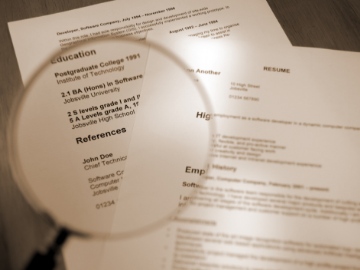5 Reasons Why You Have to Send a Post-interview Thank You Letter

The gesture of saying “thank you” or showing gratitude is a common courtesy in people. These two words are easy to say and can make somebody's day.
When you apply for a job, thanking your interviewer shows that you're grateful for their time. It also helps them feel better during a long day talking to many people. Sending a post-interview thank-you letter can make a difference, whichever way you want to do it. It can be a handwritten letter or a thank you email.
Why Send a Thank You Letter after a Job Interview?
-
It's a common courtesy
As mentioned, a thank-you letter after a job interview is a common courtesy. It shows that you know that your recruiters are busy, but they took the time to meet you. It shows you appreciate both their time and effort.
No matter how the application turns out, a thank you letter after a job interview shows your gratitude.
-
You become a breath of fresh air
The hiring process can be tiresome. Hiring managers may also be under a lot of pressure. A thank-you letter after a job interview also provides that breath of fresh air. Despite this, almost a third of applicants say they don't send a thank you letter after a job interview.
Sending a thank-you letter after a job interview can be something new to employers. It can also lift their moods and be a way to spread joy in the process and with everyone you meet.
Boost hiring managers' spirits by sending handwritten letters because these feel more special.
-
You'll stand out from everyone
Some applicants may forget to thank the hiring managers in busy and stressful situations. Sending a post-interview thank you letter can help your application.
It may be a simple action, but it helps you stand out and be memorable. It's because you gave the impression that you made an effort to reach out and let the hiring managers know how grateful you are.
A thank-you letter after a job interview helps you achieve the goal of being asked back to stay.
-
It shows your written communication skills
A thank-you letter after a job interview allows you to present your written communication skills. During the interview, you may need help to showcase this skill. But by sending a thank-you letter, you show that you're an able writer, further increasing your chances of getting the job.
To write an excellent post-interview thank you letter, learn to reiterate your desire to get the job. You can also highlight your qualifications.
There are also some things you need to avoid when drafting the letter. These include writing vague messages or in penmanship that the hiring manager may need help understanding.
-
You can clarify some things about your interview
If you sense any objections during your interview, you can clear things out with a post-interview thank you letter. It shouldn't be the focus of your letter, and you must put it in a manageable amount of detail. It can be a brief statement that provides some clarifications on the matter. You can also mention a few points you should have discussed during the interview.
Your Thank You Goes a Long Way
There are many advantages to sending a post-interview thank-you letter. It's a common courtesy and a way to spread joy. It also shows that you're grateful for the hiring manager's time. It also helps you stand out, clarify some things, and show your writing skills. Ultimately, it increases your chances of getting the job.
Whether you get the job or not, it's the thought that counts. Always show gratitude as you explore the broad range of career options with Career.com. Check them out now!


